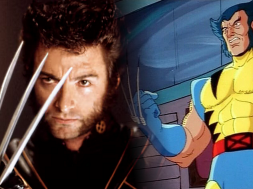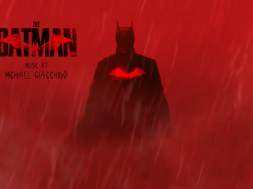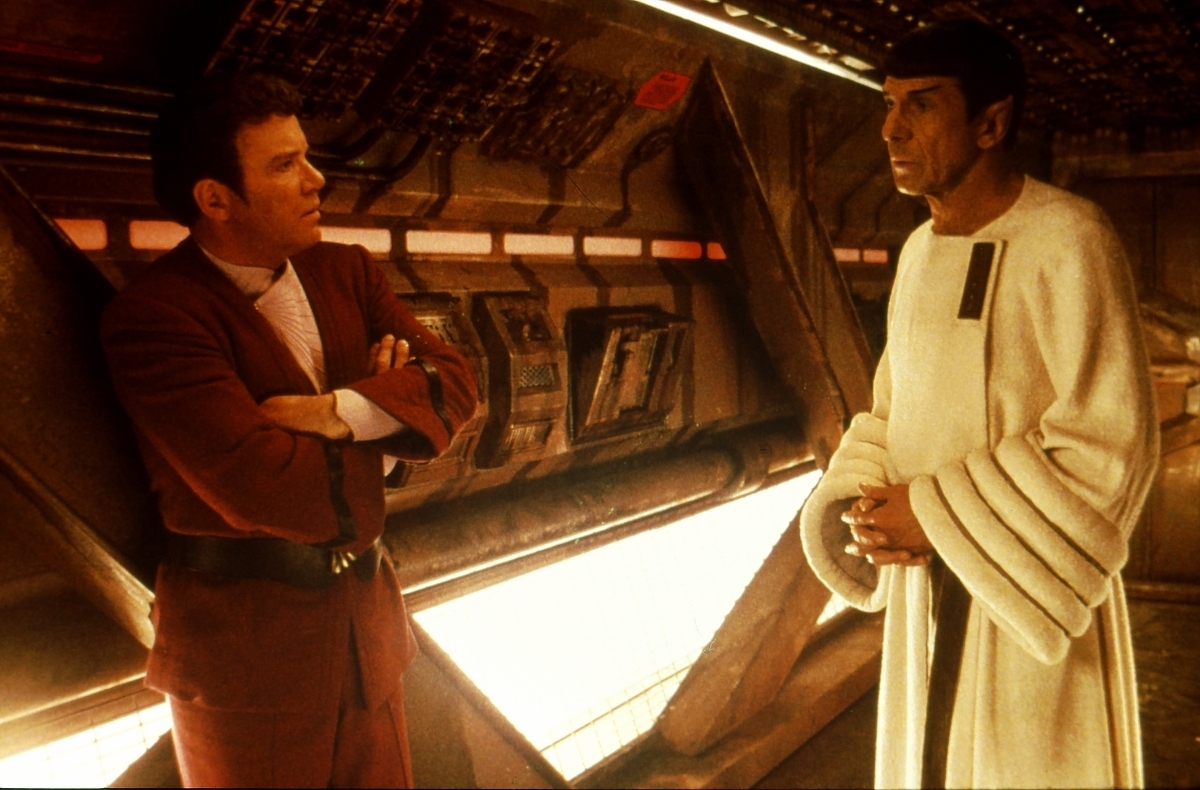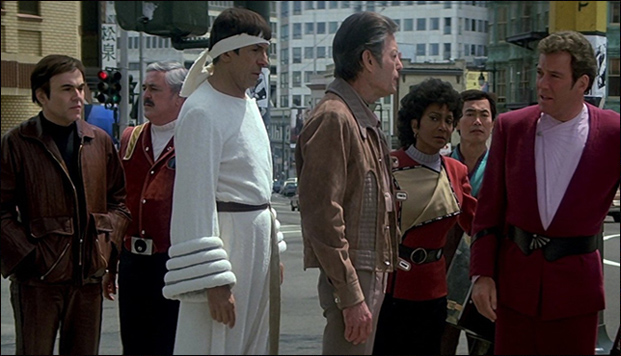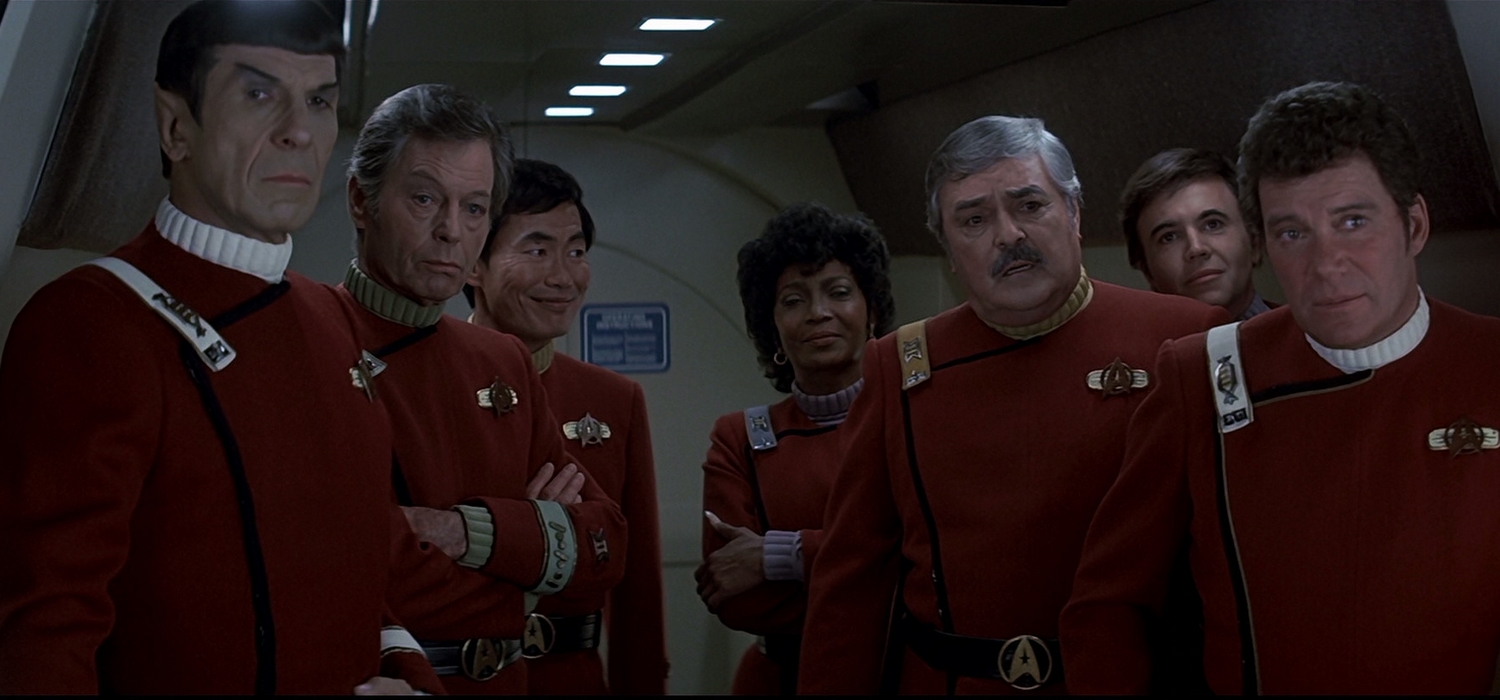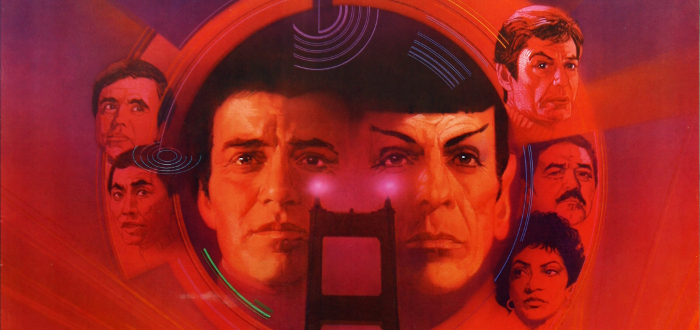
[Spoiler Warning: The Voyage Home, The Wrath of Khan and The Search for Spock are spoiled in this piece.]
Star Trek has always had a troubled relationship with the big screen. There’s no point in trying to deny it – the voyages of the starship Enterprise have always suited the freedom, flexibility and constraint that television has to offer. As poetic and awe-inspiring it is to see the far-flung future of Gene Roddenberry‘s vision realized with the shimmering production values of a blockbuster film budget, the trade-off has, more often than not been to the deficit of the stories. Of the Trek films yet made – including the rebooted trilogy – most vary from inessential popcorn fare to outright illogical messes.
There is one, though, that managed to be both fulfilling of the key qualities of the TV show and an adventure necessitating that of a feature-length approach. One that is comfortable as a grand science fiction event without betraying the heroism of ingenuity to large spectacle. I’m talking, of course, about that time Captain Kirk took his crew through time to save the planet Earth from itself – Star Trek: The Voyage Home.
Completing a three-film storyline which began with The Wrath of Khan, Voyage Home doesn’t have the action of that movie, nor does it have the rebellious unease of The Search For Spock. Voyage Home is a film about Captain Kirk and his crew returning home, only that getting back to earth happens to require time travel, saving an extinct species and diplomatically avoiding the human race’s eradication at the hands of an alien being. So, y’know, all in a day’s work.
On paper, the plot of Voyage Home is nothing short of hare-brained: After stealing and destroying the USS Enterprise during the Search For Spock, Captain Kirk and his crew – Uhura, “Bones” McCoy, Scotty, Chekov, Spock and Sulu – decide to return to earth to stand trial for their crimes. Along the way, however, they encounter a distress signal from Starfleet Command telling them to stay away as an alien probe of some sort is killing the planet. Upon investigation of the probe, Spock discovers that the probe’s signal is actually humpback whale song, a species long extinct in their time. Thus, Kirk decides to take his crew back to the 20th century acquire some humpback whales in the hope of saving their planet.
It’s preposterous, totally irrational and left-field. Putting these characters through this in the final act of a story involving the death of one of their colleagues and their rejection of their lifelong dreams to get them back would seem cruel in any other universe. Which makes it a perfect story for Star Trek to tell.
One of the great enduring strengths of Star Trek is the calmness with which the show handles dense, outlandish stories. Though sometimes shaken, the crew members of the starships of Starfleet are never perturbed from exploring and learning, even if some encounters push them to the brink of death. They’re resolute in their ambition to overcome and better tomorrow, for everyone. Voyage Home is a film built entirely on that sentiment.
Kirk deciding to go back in time to find some humpback whales doesn’t cause the crew to waiver, nor does the prospect of possibly never returning home. They accept their situation, trust in their captain and their crew-mates, and batten down for a wild ride. It’s the absolute essence of Star Trek, told with the same frayed hopefulness – “May fortune favour the foolish,” as Kirk says when they move to time travel.
But Voyage Home isn’t just Trek in spirit. The film replicates succinctly the basic outline of an episode, stretched out over two-hours. They encounter a new life-form, travel to an alien world, try to fix something broken within their means, almost lose a crew-member in the process before saving the day in the nick of time. That’s all here, except instead of an actual alien world, it’s earth our time, and what they’re trying to fix is our own future.
Which is what I really love about Voyage Home – it is, to me, a perfect distillation of what Gene Roddenberry wanted to impart to us all along with Star Trek. What the grand meaning of the series has always been: We need to build a better tomorrow, and we need to start building it now.
Someday, the world we live in now will be completely alien to a generation of humans. Some point in our future will contain kids sitting down to read about how we live right now and thinking “but, like, how did they function… at all?” With any luck, there’ll be holodecks where people can wander around like Kirk and Spock do in this movie, utterly confused by how we manage to keep the world turning everyday.
But in order for that to happen, this planet and our race need to still exist in a few hundred years time. That can only happen if we ensure our own well-being together. Voyage Home is a story of space explorers needing our past to save our present, and they manage it by time travel – we shouldn’t have to rely on time travel to fix our mistakes.
What Voyage Home does is test the optimism of Star Trek‘s MO with a situation that’s utterly dour in its implications. The alien probe is found to be completely peaceful in the movie, Spock chastising Kirk for believing it to be hostile at first glance. Something otherwise entirely harmless almost kills us because we couldn’t manage to keep all our animals alive. The story grinds at that sense of wonder and achievement that Roddenberry sewed deep into the DNA of Star Trek. And in that way, Voyage Home is also about the concept returning to its roots of being so resolutely inspirational.
In the previous two movies we saw a different side to Kirk and his crew. What was previously charming unpredictability had turned to desperate lawlessness in desperate times. Here, they’re back as the tight-knit set of Starfleet’s finest, ready to take on what’s in front of them. In returning the characters to their cheerier demeanour, the film demonstrates the great less of Star Trek – no matter the hardship, return stronger and better. Persevere.
And by utilizing so much of what many love about Star Trek – right down to its common format – the film gets this across so well that by the end, when the crew are staring at a rebuilt Enterprise, it feels like a legitimate rebirth. Like they’ve voyaged home, back to where staring at the stars brings only wonder and excitement, and where tomorrow isn’t a death sentence we’ve already signed off on.
It’s a home Gene Roddenberry really believed we’ll build something incredible from. With Star Trek, I’m reminded to believe so, too. As I hope, are you. LLAP.


